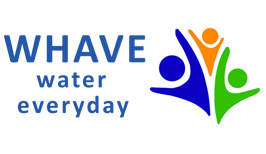Rural Water Supply Uganda
Social entrepreneurship in the water sector
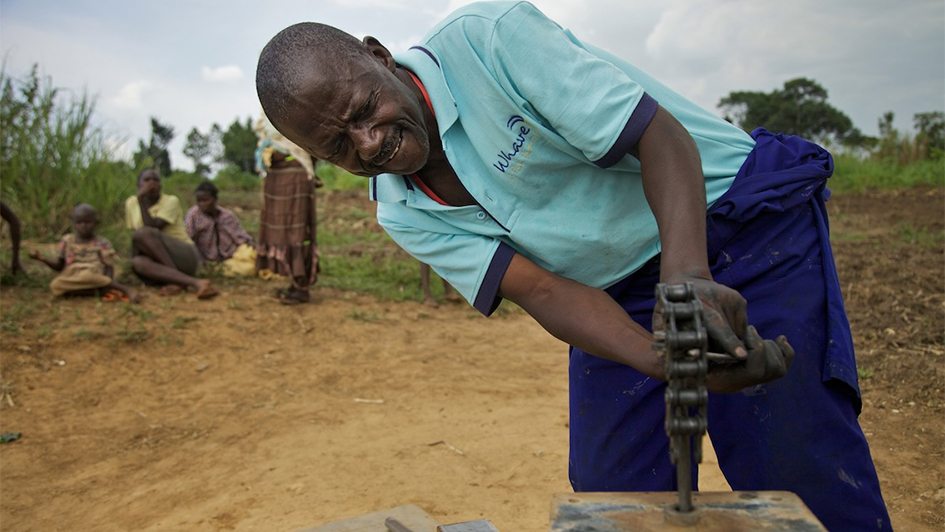
Water supply is central to social development. However, many communities have limited or no access to clean water, particularly in rural areas. Social enterprises can bridge this gap. In Uganda, we support their work and strengthen their impact to ensure sustainable water supply in remote communities.
Hand pumps as main water source in rural Uganda
Only 19% of the Ugandan population has unrestricted access to clean drinking water. The majority live in larger cities, where water supply systems continue to be expanded. In rural Uganda, however, most people still rely on hand pumps to access clean water. Yet most of them are affected by long downtimes every year. 45% of the hand pumps fail to work and a further third only function poorly, which can lead to water contamination.
When the hand pumps fail and access to clean groundwater becomes impossible, many are forced to resort to surface water from lakes or rivers. This results in water-borne diseases such as cholera and diarrhea. Women and children often have to travel long distances to fetch water instead of going to work or school. Overall, this reduces productivity and development potential in the communities.
Water acces & health
Two weeks after the failure of a hand pump, serious health consequences can occur in a community.
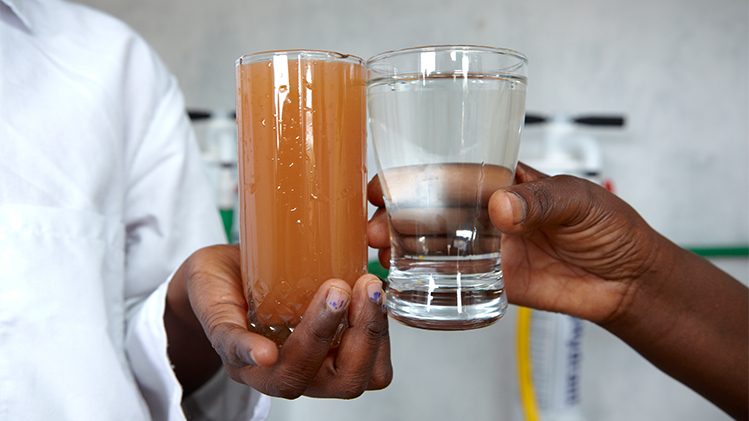
Locally anchored social enterprises close gaps in basic services
Understanding the problems of water supply in Uganda and counteracting them requires local solutions. On-site social enterprises can make an important contribution: they work closely with the communities for whom they offer products and services. Their focus is on sustainable impact and user needs. Based on this conviction, Siemens Stiftung works with social enterprises in the area of essential services – since 2018 with our partner Whave Solutions.
Whave Solutions: sustainable maintenance system for hand pumps
In response to the long downtimes of hand pumps, Whave Solutions has developed a professional maintenance service. With this approach, round-the-clock water supply is managed by a professional provider. The water users sign a contract with the social enterprise and pay an affordable basic fee for the maintenance service. Whave Solutions, in turn, commissions and trains local technicians who maintain the water pumps. On the one hand through regular preventive maintenance and on the other hand through urgent repairs that can be requested via a toll-free phone hotline. With this maintenance system, Whave Solutions ensures access to clean water for over 330,000 people in 17 districts.
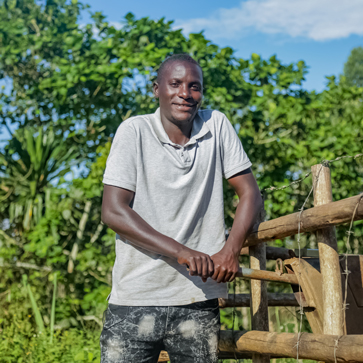
Networks with communities and politics
A water committee is set up in each community, as a contact for maintenance, to collect fees and consult on relevant issues. Our partner Whave Solutions is committed to ensuring that women also take up leading positions on community water committees.
At the policy level, the social enterprise works with local authorities and communities to form public-private partnerships that align with national government policy for safe water supply. Whave Solutions supports the government in implementing the national targets for maintenance and servicing of water supply and supports other service providers to expand into other regions.
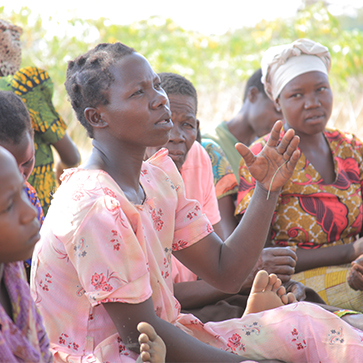
Video Interview
Faith Tebesigwa (Service Area Manager, Whave Solutions) and Marion Pabst (Project manager, Siemens Stiftung) give some insights into more than six years of collaboration and joint achievements.
Partner
Collaboration with Whave Solutions
Project manager
Christine Meinhardt
christine.meinhardt@siemens-stiftung.org



